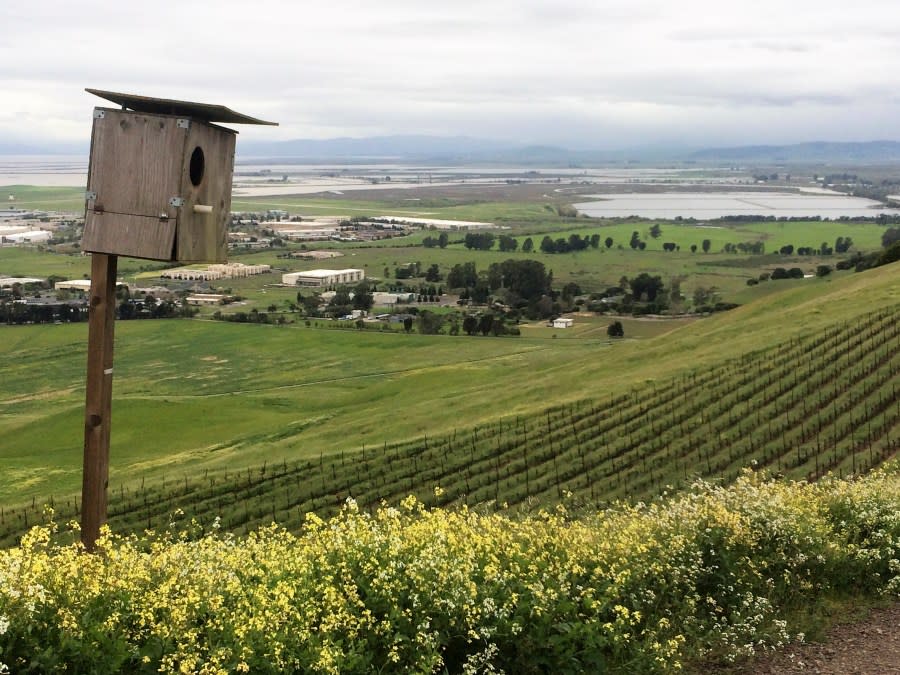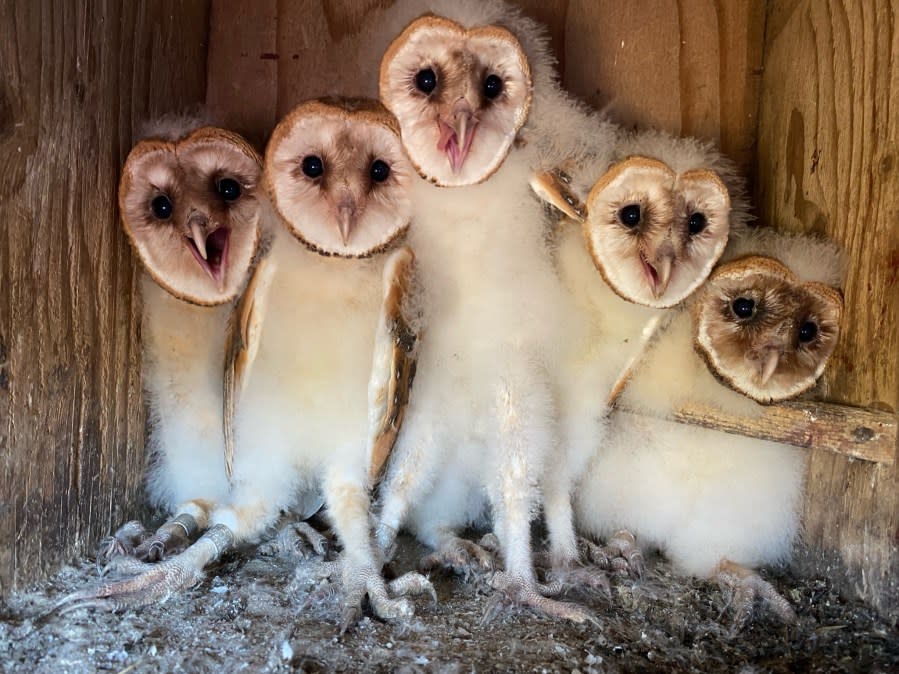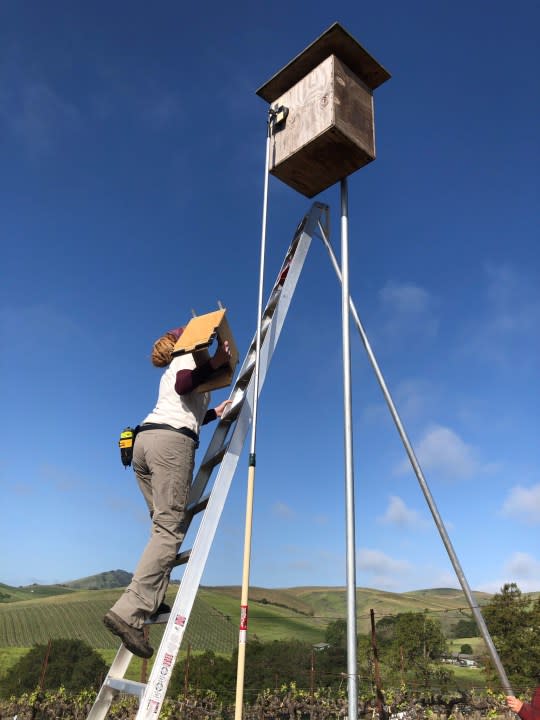How owls could be the next frontier for pest control in Napa Valley

(KRON) — If the wine on your table this holiday season is from Napa Valley, you might have some feathery friends to thank for the good harvest.
Matt Johnson, professor in Cal Poly Humboldt’s Department of Wildlife, and his students have been studying the role owls play in pest control in Napa Valley, Sonoma and the Central Valley for the past nine years.

“We do have evidence that it’s not just a feel-good story; that they do actually help control rodents,” Johnson said. Specifically, gophers, mice and voles, Johnson added, which are big issues for the region’s award-winning vineyards.
In Napa, there are over 300 barn owl nest boxes. The lab estimated that each property with two bird boxes home to an average of two adult owls and four babies kills 1,000 rodents over the course of the breeding season between March and June. Research also shows that properties with boxes home to insectivorous birds might be immune to pest outbreaks.

Johnson said because of barn owls’ almost cosmopolitan nature, farmers all around the world have latched onto this idea; from palm farmers in Israel to rice farmers in Florida to oil palm farmers in Malaysia and vegetable farmers in Kenya.
“Barn owls will eat whatever the local rodent is so that really can be a useful tool,” Johnson said.
Johnson said they are working on the economic analysis of how this can help farmers in the future, but they do know that using barn owls can serve as a safer and more sustainable method of pest control.

Second Generation Anticoagulant Rodenticides are increasingly tightly regulated by the state of California. In 2020, Governor Gavin Newsom signed a bill that banned the use of SGARs until further evaluation. These pesticides can be deadly to non-target species, including foxes, coyotes and even your dog.
“The writing is on the wall,” Johnson said. “Poisonous rodenticides will not be around and available for farmers to use in the future.”
Johnson’s research is funded by the Agricultural Research Institute.
For the latest news, weather, sports, and streaming video, head to KRON4.

